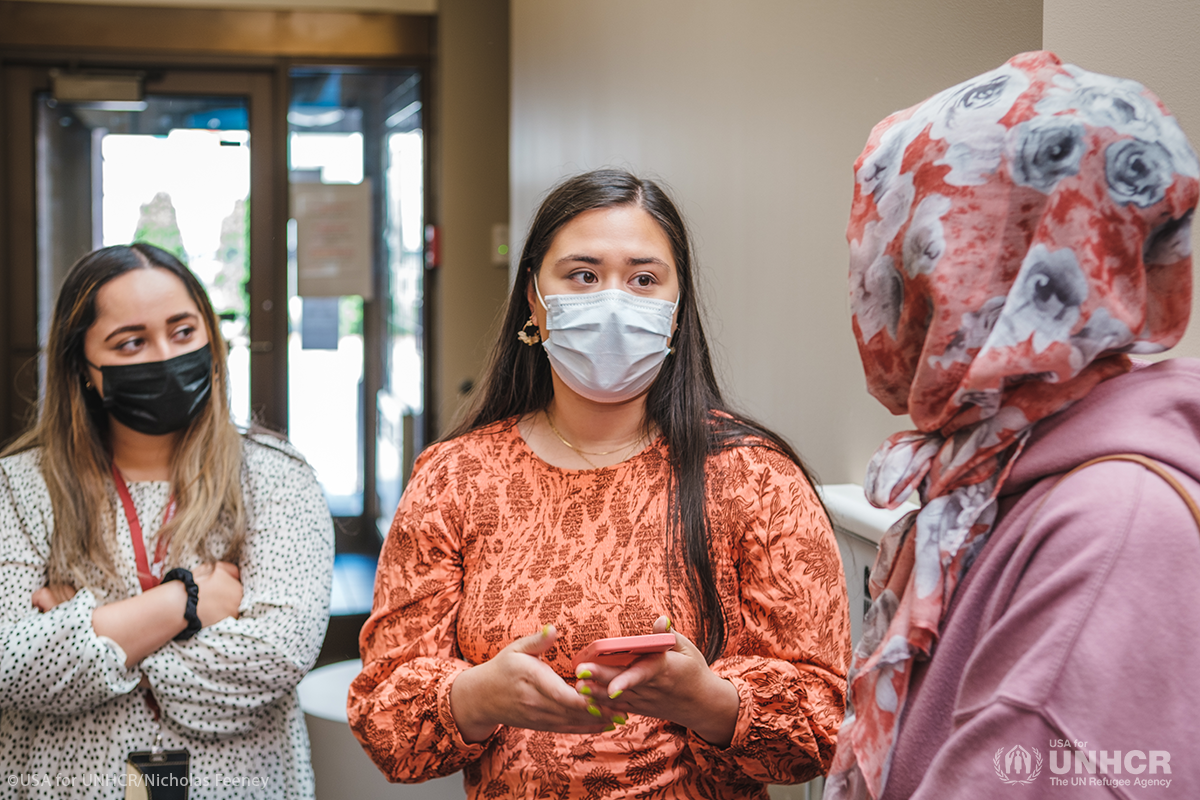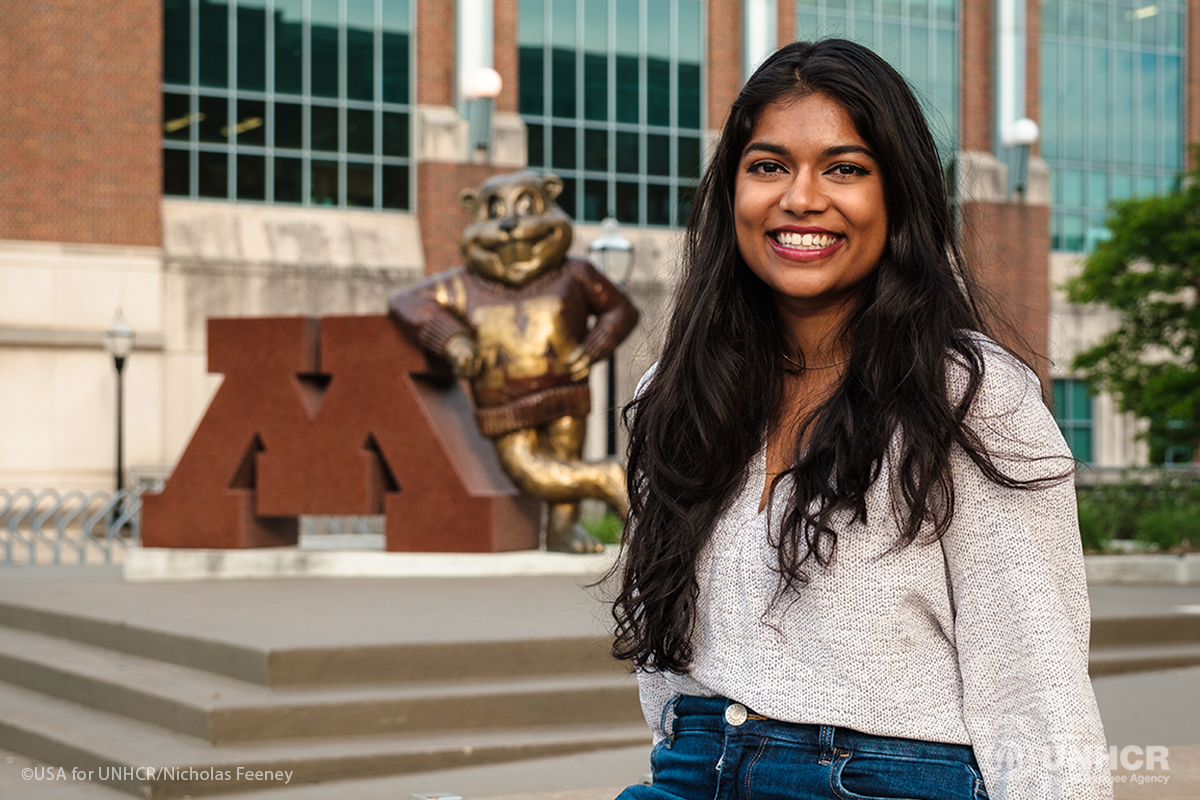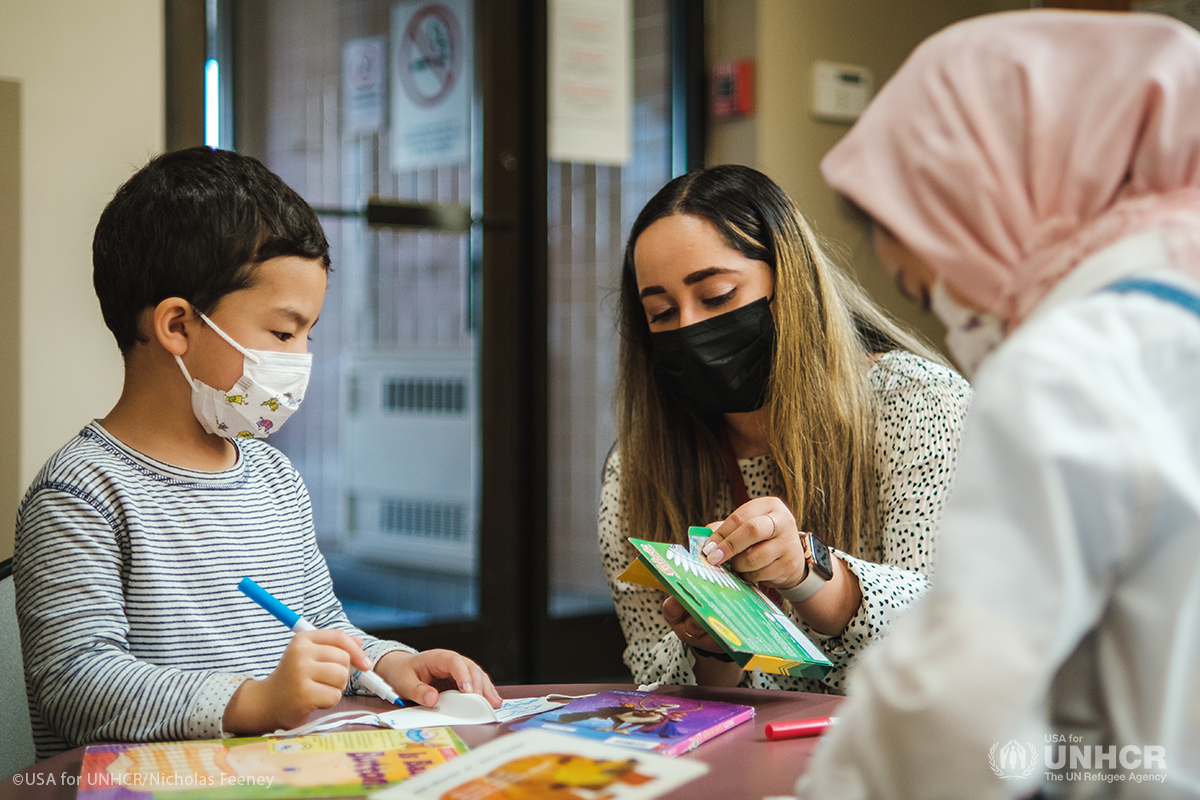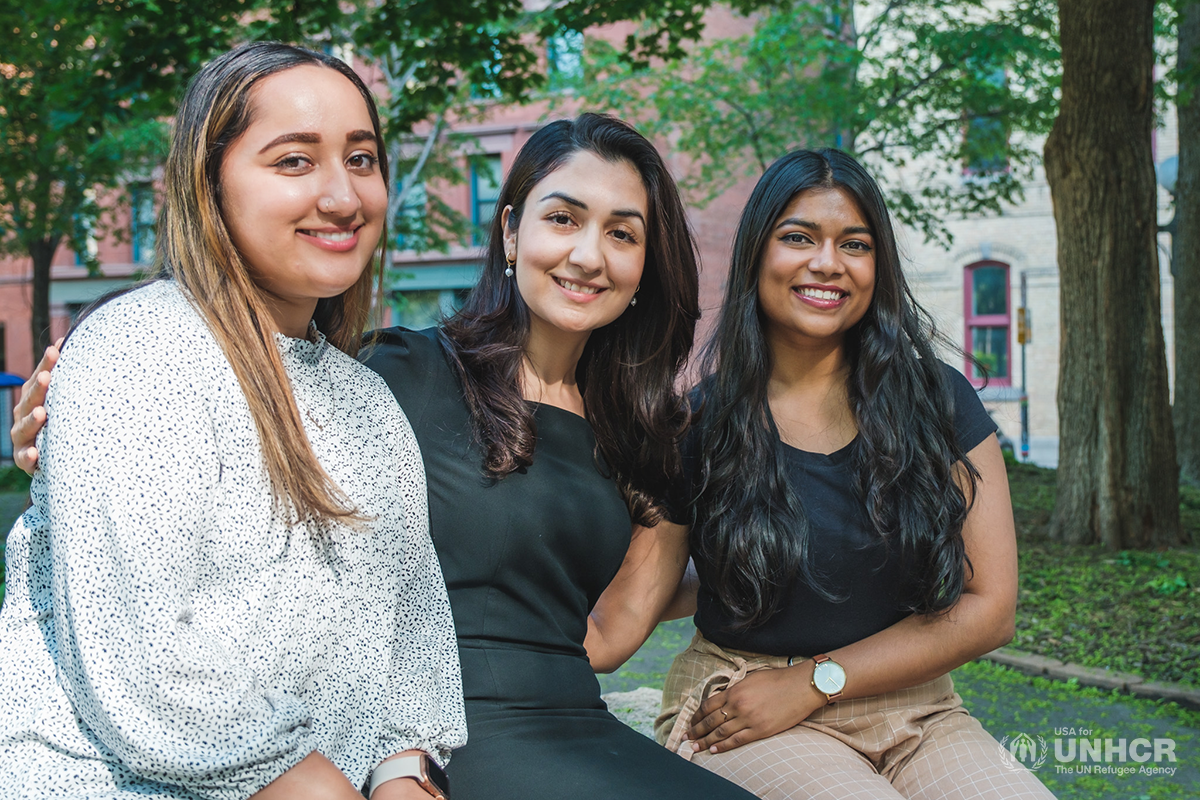Meet three allies delivering healthcare and empowering refugees in Minnesota
For three healthcare professionals in Minneapolis, the idea of allyship takes the shape of welcoming refugees and newcomers to the Twin Cities with access to critically needed care. Each brings a unique perspective to the work but they share a passion for service and a deeply held belief that all people deserve care and a safe place to call home.
“Being an ally for refugees really means being there to get to know a community that has come to the United States,” shares Maggie Eckerstorfer, Lead Coordinator for the University of Minnesota Mobile Health Initiative. “It’s about being aware of how they are doing in the community, the history of why they came and knowing where people are at so we can support them as they adjust to life in their new home.”

Launched in 2020 the Mobile Health Initiative addresses disparities in healthcare access throughout the state. By building collaborations among healthcare professionals and trusted community partners, the Mobile Health Initiative is tearing down barriers to healthcare access, such as economic, social and cultural, while engaging historically marginalized communities like the indigenous, immigrant, migrant and refugee communities throughout Minnesota.
Maggie, Rashika and Hadia coordinate initial health assessments and connect families to primary healthcare when they arrive to the Twin Cities. They also maintain long-term relationships with families and established communities throughout the state and play a vital role in raising awareness about chronic diseases like diabetes, providing free medications and have been on the frontline of delivering care during the COVID-19 pandemic.
Rashika Shetty, a Site Lead with the Mobile Health Initiative, approaches her work from a place of empathy and shared understanding. “I am an immigrant to this country. Although I wasn't a refugee and didn't come from the same circumstances, I definitely know what it feels like to adjust to the norms, to have to assimilate with the culture and all the differences and hardships that come along with that,” shares Rashika. “And I think trying to give back to others who are facing the same thing is really important.”

Minnesota has a long history of welcoming refugees and newcomers. After President Jimmy Carter signed the Refugee Act of 1980 into law, Minnesota quickly established itself as a welcoming community to refugees. Today, Minnesota is home to Vietnamese, Hmong and Somali refugees, and more recently, newcomers from Afghanistan.
For Hadia Mohammadzadah, a Site Lead with the Mobile Health Initiative, the inspiration for her allyship is rooted in her family history (her parents fled Afghanistan 30 years ago) and a unique understanding of why the right to seek safety is so critical.
“Everyone deserves to live in a safe space,” says Hadia. “It's important and there needs to be somewhere that welcomes refugees, and I think that's what we were doing here,” she continues. “I'm really proud that Minnesota has been so welcoming to all of these newcomers and I hope it stays that way.”

Through their work, Maggie, Rashika and Hadia have had the opportunity to work alongside other healthcare professionals and gain invaluable experience and guidance. Dr. Mehria Sayed Shah, who was initially connected to the work of the Mobile Health Initiative through colleagues at the University of Minnesota Global Health Department, has become a mentor for the women as they navigate their work and prepare for future career opportunities.
“I think all three of them have very bright futures ahead of themselves,” Dr. Sayed Shah proudly shares. “Regardless of what they choose, their dedication to helping underserved communities, their passion for that, it will serve them so well.”

While Maggie, Rashika and Hadia continue to deliver care to refugees and newly arriving families throughout Minnesota, they are sensitive to the fact that these communities will continue to need support and hope their work can inspire others to learn more and take action.
“I would say that it's a reflection of American ideals,” says Rashika on the importance of welcoming and supporting refugees. “Our whole idea is to provide opportunities for people and allow them to become independent and make their own way in the world,” she continues.
Hadia hopes sharing the story of the Mobile Health Initiative will inspire others and reminds us that no act is too small. “It doesn't matter what you're doing, you could be delivering meals like I started out doing. Little by little you're making a difference.”
“When refugees come to the United States, there is still a long process in the months and the years to come for them to access the resources that they need,” says Maggie. “I would just encourage people to think … what are they going to need? And how can we support them further on?”
How can you help
Are you inspired by Maggie, Rashika and Hadia's work empowering refugees in Minneapolis? Find out how you can join USA for UNHCR to support refugees in your community and around the globe.


